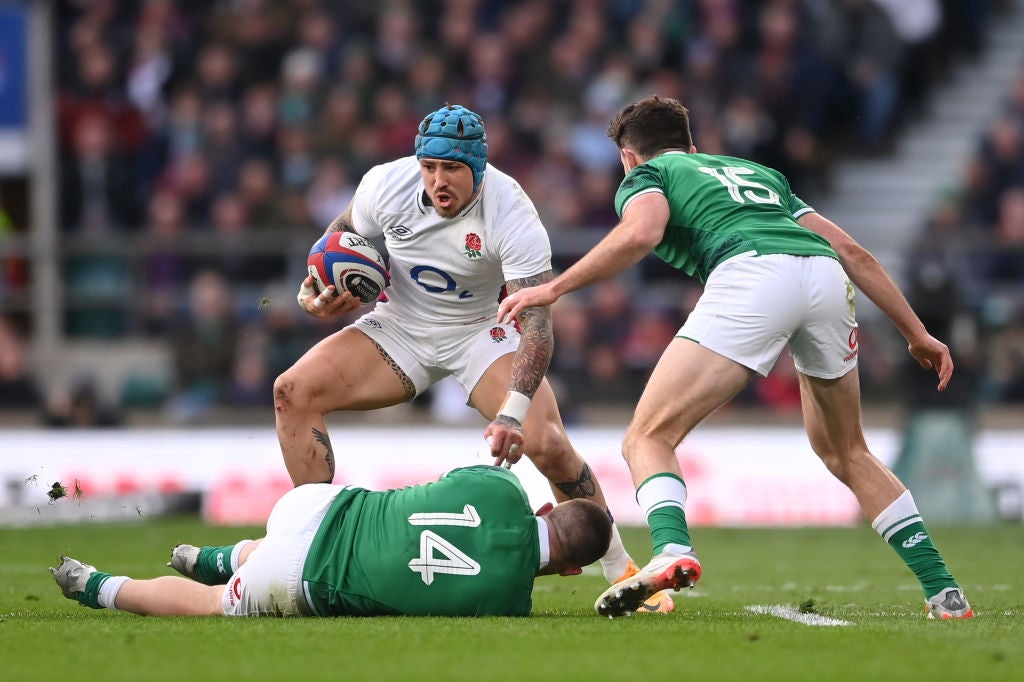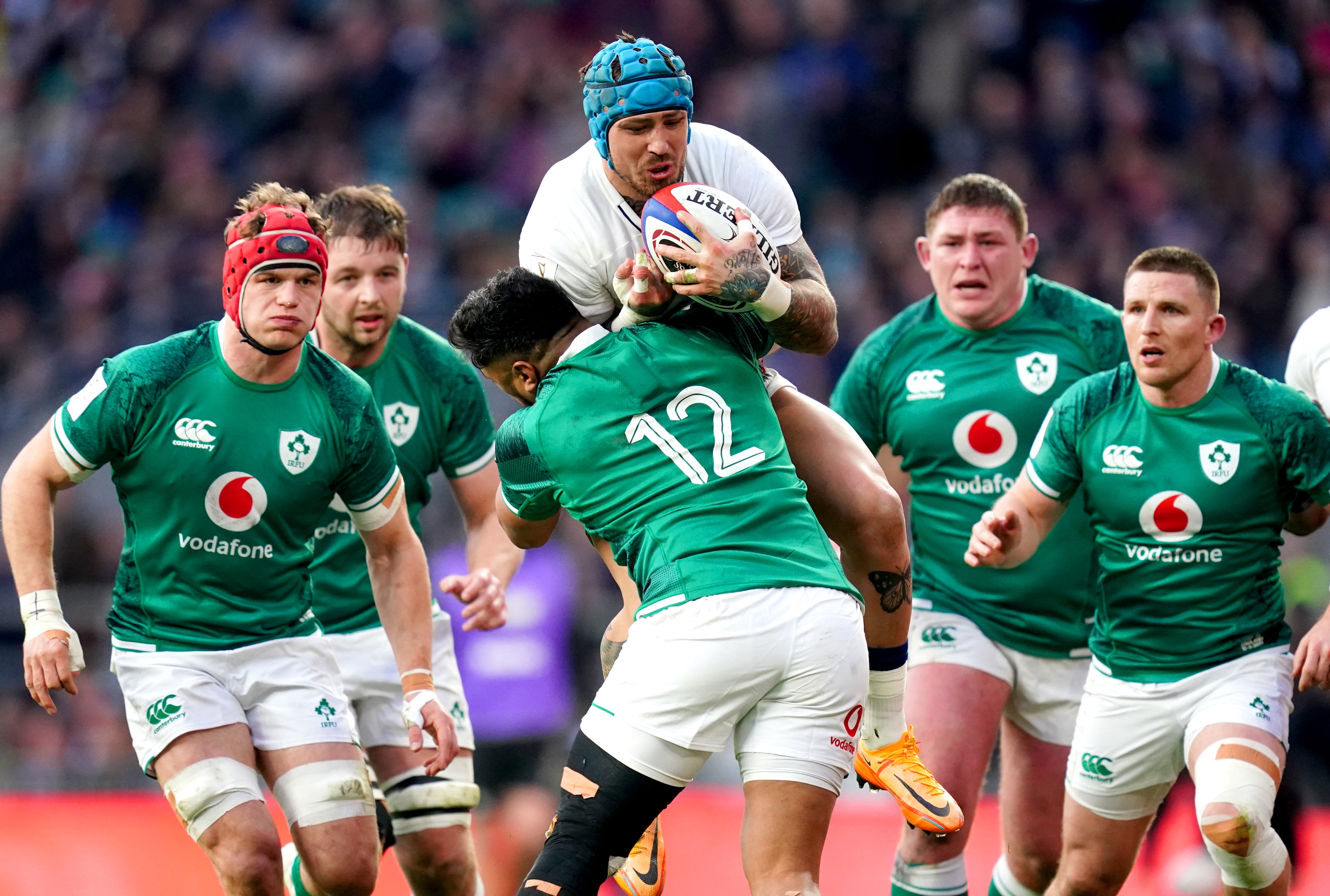Jack Nowell happy to help but rules out regular outings in England back row
Nowell switched between wing and flanker in England’s defeat to Ireland

Your support helps us to tell the story
From reproductive rights to climate change to Big Tech, The Independent is on the ground when the story is developing. Whether it's investigating the financials of Elon Musk's pro-Trump PAC or producing our latest documentary, 'The A Word', which shines a light on the American women fighting for reproductive rights, we know how important it is to parse out the facts from the messaging.
At such a critical moment in US history, we need reporters on the ground. Your donation allows us to keep sending journalists to speak to both sides of the story.
The Independent is trusted by Americans across the entire political spectrum. And unlike many other quality news outlets, we choose not to lock Americans out of our reporting and analysis with paywalls. We believe quality journalism should be available to everyone, paid for by those who can afford it.
Your support makes all the difference.Jack Nowell will gladly come to the aid of England’s pack again in the future but has ruled out making more frequent appearances among the forwards.
Ireland emerged 32-15 winners from a Six Nations classic at Twickenham on Saturday, but only after Eddie Jones’ men had provided heroic resistance in overcoming the red card shown to lock Charlie Ewels 82 seconds into the clash.
Eventually they fell away in the closing stages, but it was still a remarkable day for England’s scrum as they harvested six penalties even with Nowell packing down in the back row to compensate for the loss of Ewels.
Nowell switched between wing and flanker as the hybrid experiment first mooted by Jones in 2019 was finally seen in action, albeit with a set-piece focus in less than ideal circumstances.
Captain Courtney Lawes joked afterwards that Nowell is “more of a flanker anyway”, but the versatile Exeter Chiefs man has no intention of leaving the threequarters.
“Nah, I don’t think so! I enjoy the open space a bit more and enjoy getting my hands on the ball, although I’m not saying a back row can’t do that,” he said.
“I prefer to be able to get over the ball and get amongst it from the wing or centre, in the backs, not staying in the forwards. I’m happy on the wing, but if I need to fill in in the back, then I’m more than happy to.
“The way the forwards train and the way they’re made is a different level. I look over at how the forwards maul in training and that’s different gravy!
“We were down to 14 men and we wanted to go for the scrum. Our pack got a sense of what could happen, so we decided to stick with eight. It was my job to fill in that back-row gap. Sometimes it pays off, sometimes it doesn’t.
“I kept saying to Ellis Genge after each scrum: ‘Was that OK? Are you happy with that?’.

“The forwards gave me good feedback and the job becomes a lot easier when you have guys like Genge and Kyle Sinckler there, and Courtney Lawes beside me.”
Ireland’s record Twickenham victory, unjustly skewed by Finlay Bealham’s late try as England’s resistance finally ran out of steam in the final eight minutes, created mixed emotions.
It eliminated the hosts from title contention with a round remaining, yet they had delivered a defiant performance that proved whatever the team’s limitations, resilience and a unified sense or purpose are not among them.
“You live for games like that because that was a real Test match. It’s why we play rugby. Going down to 14 men is a big challenge, but this team are very much together and we dealt with it very well,” Nowell said.
“The forwards were celebrating the scrums, the backs were celebrating their little actions. It shows what it means to us and what it means to this team, it showed that we are willing to fight for everything and for every inch.”
Among the many heroes on display was Maro Itoje, who overcame the illness that almost ruled him out of the game to cause havoc across the pitch.
“We are very proud of the fight we showed. There were numerous times in that game when it would have been easy to roll over, but we stuck in there,” Itoje said.
“The scrum was a big weapon and it gave us a foothold in the game. It’s the hallmark of English rugby and we need to continue develop it.”
Join our commenting forum
Join thought-provoking conversations, follow other Independent readers and see their replies
Comments